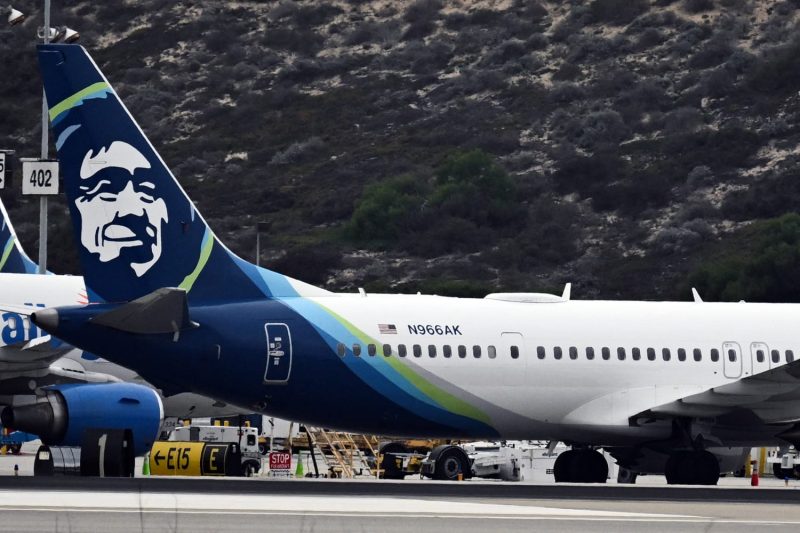Alaska Airlines and United Airlines have both confirmed plans to return their fleet of Boeing 737 Max 9 planes to service in the wake of a near-disaster that saw a door panel on an Alaska jet carrying 177 people blow out midair.
In its latest earnings report released Thursday morning, Alaska Airlines said it is preparing to complete inspections on all of its 737 Max 9 aircraft, and that each aircraft would be returned to service after its inspection had been completed and any findings resolved.
CNBC reported Thursday that Alaska Airlines indicated that Max 9 flights would resume as early as Friday, after the Federal Aviation Administration approved final inspection instructions late Wednesday that were required to return the planes to service.
United Airlines, the other major carrier that flies Max 9 jets, said Thursday that it will return the planes to service by next week.
The FAA grounded all Max 9s one day after the near-disaster over Portland, Oregon, on Jan. 5.
Alaska Airlines Flight 1282.Obtained by NBC affiliate KGW
The door plug from Alaska Airlines Flight 1282 is recovered Jan. 8 in Portland, Ore. National Transportation Safety Board via AP
Alaska Airlines’ schedule has remained beset by cancellations ever since; 20% of its fleet is composed of Max 9 planes. On Thursday, 22% of its flights remained canceled, according to data from FlightAware.
In an exclusive interview with NBC News senior correspondent Tom Costello, Alaska Airlines CEO Ben Minicucci said the company has sent its own audit team to assist with Boeing’s inspections of its aircraft to ensure quality and safety.
‘There’s no doubt that Alaska received an airplane off the production line with a faulty door,’ he said.
The Seattle Times reported Wednesday that the faulty door panel appeared to have been produced at the company’s Renton, Washington, facility and not — contrary to earlier reports — the responsibility of a third-party firm based in Malaysia.
The future of Boeing’s entire Max production expansion is less clear after the FAA put the company’s planned production increases on ice.
‘This won’t be back to business as usual for Boeing,’ FAA Administrator Mike Whitaker said in a statement. ‘We will not agree to any request from Boeing for an expansion in production or approve additional production lines for the 737 Max until we are satisfied that the quality control issues uncovered during this process are resolved.”
Boeing shares have fallen 20% since the early-January incident.
